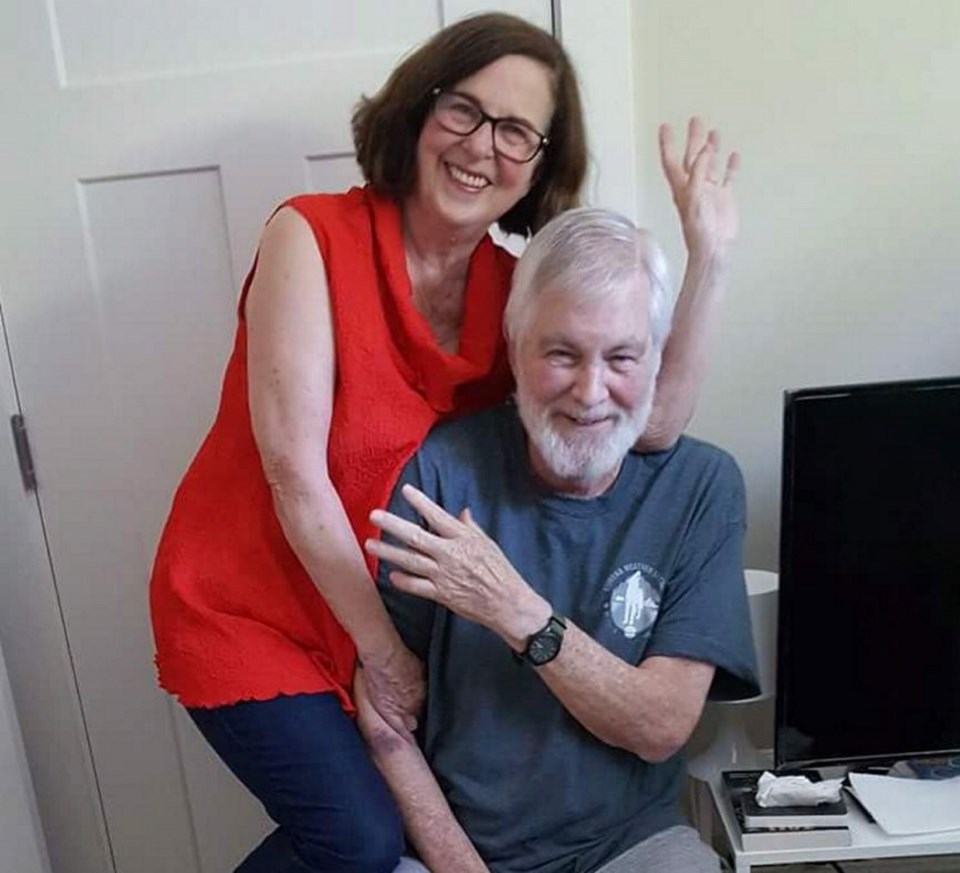Parksville’s Ron Wakefield was knocking on death’s door two years ago when a heart transplant changed everything.
“I was not in good shape at all,” he said. “If I had to walk up my drive, about 100 feet, I’d have to stop three times.”
But after his surgery, “I could take deep breaths again,” he said. “Life then and now is night and day.”
The 500th heart transplant performed in B.C. took place in June, a milestone celebrated Wednesday.
Ten British Columbians are on the waiting list.
Wakefield’s wait ended in June 2017 with a call from St. Paul’s Hospital in Vancouver.
A year earlier, he had returned home from a stint at the Eureka environmental weather station in the Arctic seriously ill.
His legs were so swollen they were weeping, said his wife, Susan Wakefield, describing a condition known as leg edema, where an abnormal amount of fluid is retained in the legs due to a heart condition or congestive cardiac failure.
“I don’t know how he was alive,” she said.
She took her husband to Nanaimo Regional General Hospital. He was transferred to Royal Jubilee Hospital in Victoria, and told he needed a heart transplant.
Heart transplant is used to treat severe, end-stage heart failure, which can be caused by damage to the heart from congenital heart defects, coronary artery disease, heart valve problems and infections.
Ron was a non-smoker and didn’t drink, but he had a family history of heart disease and did a lot of shift work over the decades.
“He was probably a ticking time bomb,” Susan said.
On June 7, 2017, the Wakefields were in Vancouver following a pre-transplant checkup. “There was something different in the air that day,” Susan said. “We had a good feeling.”
The couple went to a favourite spot for lunch. In the middle of their meal, they got a call: “Stop eating and get up there — we have a Type O large heart.”
That night, 69-year-old Ron got his new heart.
“I believe a heart transplant is where faith meets science,” Susan said. “So many things can go right or wrong.”
Before 1996, the five-year survival rate was 65 per cent. Today, it is more than 80 per cent.
Improved research, progress in anti-rejection medication, better management of donor hearts and increased support before and after transplants have led to heart transplant recipients living longer.
The longest living recipient of a heart in B.C. had his transplant almost 30 years ago. Tony Beeftink was 37 years old when he nearly died from a virus that attacked his heart. The retired high school teacher, who now lives in Salmon Arm, was the second person to receive a heart transplant in B.C.
For his part, Ron knew he was going to heaven or back to Parksville, and he was fine with either.
“I was not scared or worried,” he said. “I had confidence in all the people involved.” After the surgery, he wanted only Tylenol for pain and was excited to start walking again.
The first heart transplants were performed in 1988 at Vancouver General Hospital. Since 1996, they have been performed at St. Paul’s Hospital in Vancouver and at B.C. Children’s Hospital. The oldest recipient was 72, while the youngest was 26 days old.
B.C. Health Minister Adrian Dix said the transplants are the result of the selfless gift of donors and their families and that the 500th milestone is only possible because of the skill and dedication all involved.
More than 1.2 million British Columbians are registered in the province’s organ donor registry; however, more than 600 British Columbians are on the wait-list for a transplant.
For more information on becoming an organ donor, go to transplant.bc.ca.



